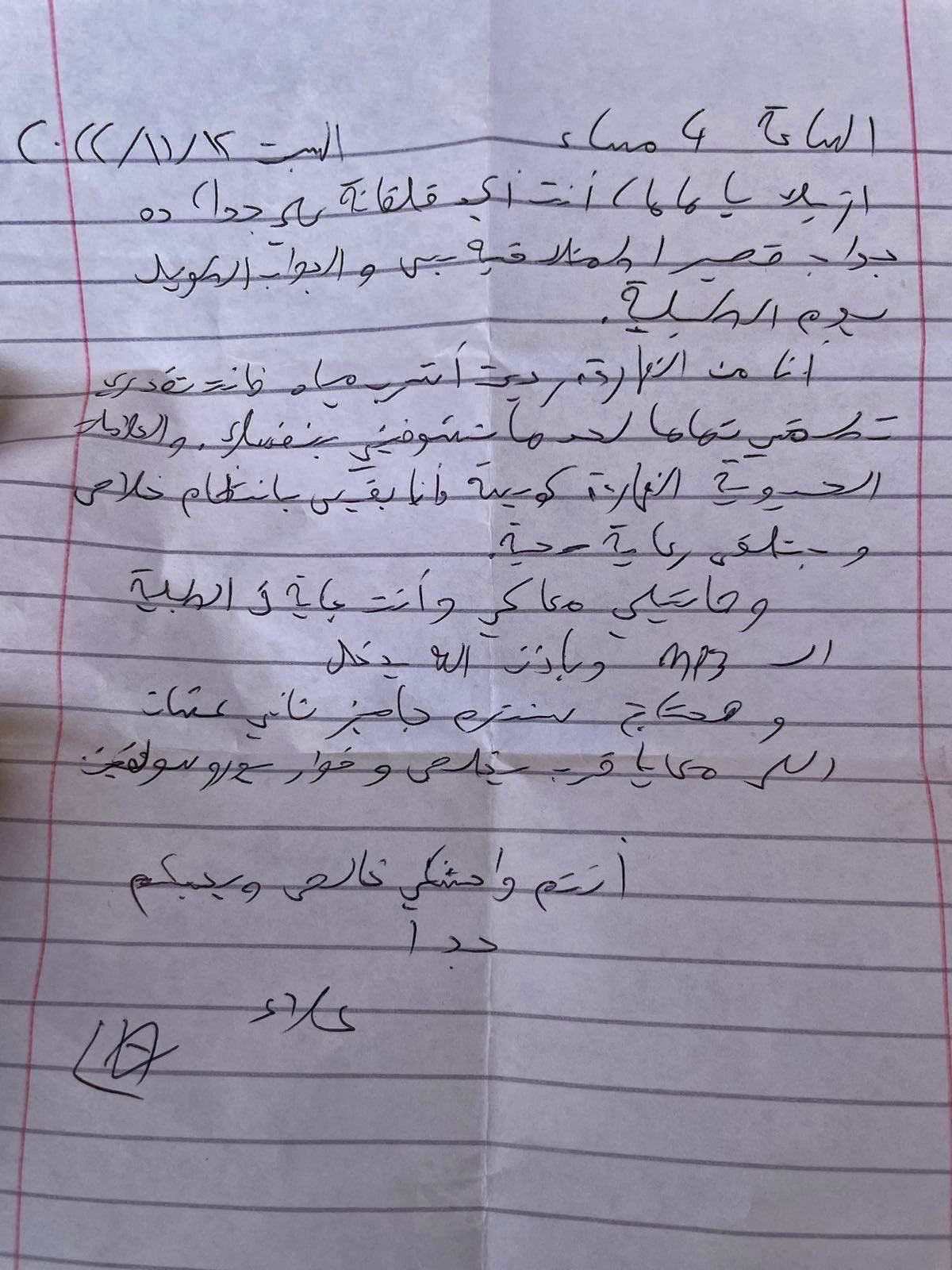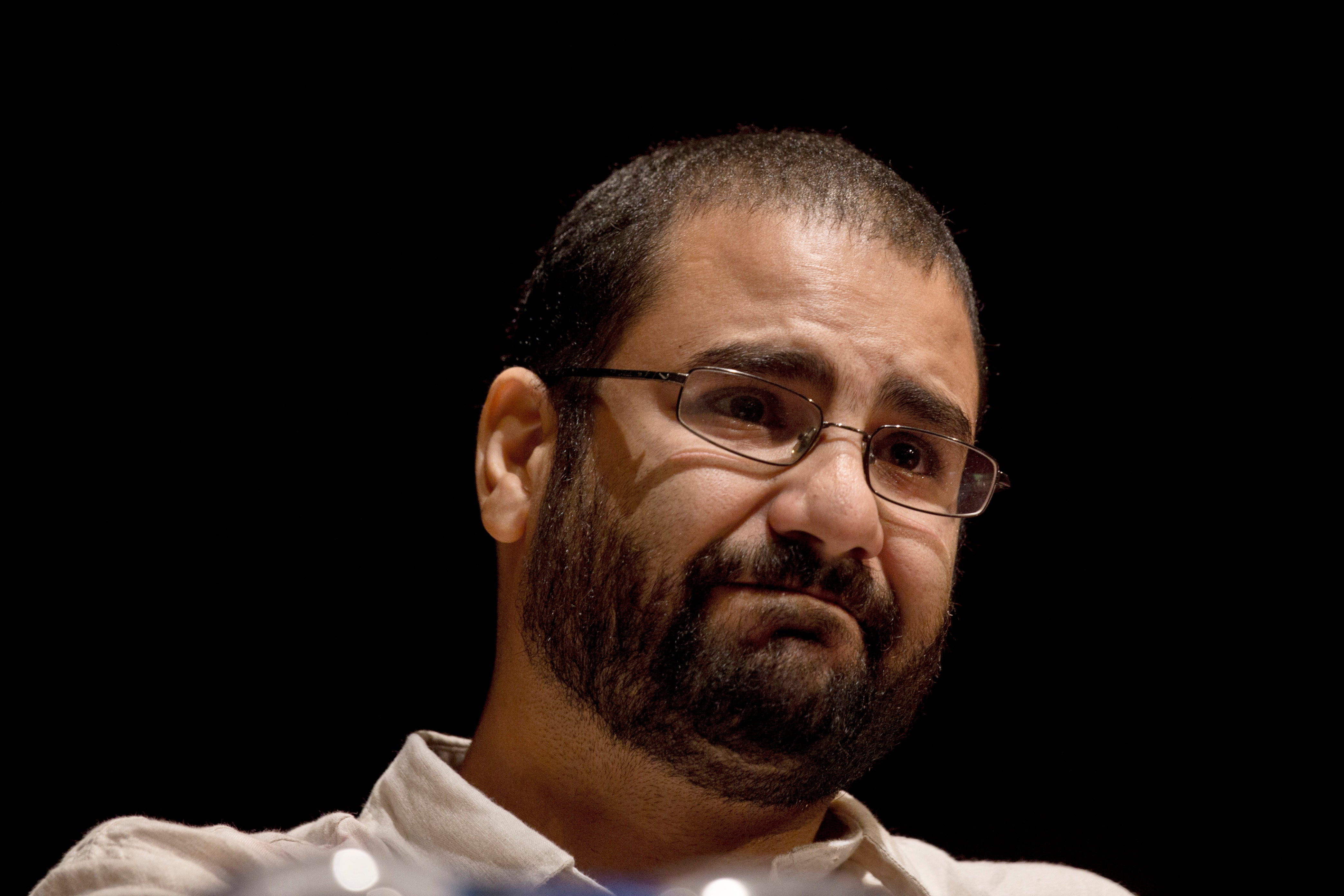
The regime in Egypt “will be smelling the weakness” in British foreign secretary James Cleverly’s recent comments regarding jailed pro-democracy activist Alaa Abdel-Fattah, a former ambassador to Cairo has warned.
Accusing Mr Cleverly of “talking as if it’s just a procedural disagreement amongst friends”, James Casson urged the UK government to end the phase of “polite requests” and make the British-Egyptian national’s case “the defining issue” in its relationship with Cairo.
The ex-diplomat warned that “Egypt is playing for time and are banking on our ministers losing interest and being all talk” – lamenting that their tactic “looks like it might be working”.
As world leaders descended upon Sharm el-Sheikh for the UN’s Cop27 summit, Mr Abdel Fattah – a hero of Egypt’s Arab Spring uprisings, jailed for much of the past decade – intensified his six-month hunger strike and began refusing water to highlight his unjust detention and demand consular visits.
Despite Rishi Sunak raising the case of the 40-year-old activist with Egyptian president Abdel Fattah al-Sisi last week, the regime proceeded to repeatedly block his lawyer from visiting him in prison after opaquely announcing they had “medically intervened” in his case.
Hours after finally receiving a cautiously worded “proof of life” note in Mr Abdel-Fattah’s handwriting reassuring them that he was “drinking water again”, his family said on Tuesday they had received a further letter from him via prison authorities, saying he had ended his hunger strike.
In the letter, written in unclear circumstances, Mr Abdel-Fattah appears to pledge to “explain everything on Thursday” during a monthly family visit.
But prior to the most recent note, Mr Casson – who served as Britain’s ambassador to Cairo from 2014 to 2018 – had warned that “things still look pretty grim”, and suggested Egpyt appears to be merely waiting for international pressure to subside.

“We went from the foreign secretary, who 12 days ago was saying he was working ‘tirelessly’ for Abdel-Fattah’s release, to yesterday saying he remained interested in the case and talking as if it’s just a procedural disagreement amongst friends,” Mr Casson told BBC Radio 4’s Today show on Tuesday.
“The Egyptians understand power and they will be smelling the weakness in what the foreign secretary said yesterday.”
Mr Cleverly told MPs on Monday that a “difference of opinion” centred on Cairo’s refusal to accept Mr Abdel-Fattah’s dual British nationality. Earlier that morning, he told the Today show that Britain had “highlighted the disagreement” at every level about whether the high-profile activist was a British citizen.
“We will continue to make it clear to the Egyptian authorities that we are interested in this case and we will continue pushing for consular access,” the foreign secretary told MPs on the Commons foreign affairs committee. “We are able to speak regularly and frankly with the Egyptian authorities about this case.”
But Mr Casson warned that giving “airtime to that Egyptian talking point” of whether Mr Abdel-Fattah’s British citizenship is valid amounts to “gaslighting”.
“We need to be clear that this is daily persecution of a British national by the very Egyptian officials that the foreign secretary is talking to, and if we want to save his life we need to show that the longer this goes on, the more serious it will become, not the less serious,” the ex-diplomat said.

Accusing the government of “sending very mixed messages”, he urged ministers to “spell out clearly the consequences if any further harm comes to Abdel-Fattah”, adding: “I would like to see the defence secretary pick up the telephone to his opposite number and say ‘this is now a test of our partnership’, because this is a military regime in Egypt that only believes you’re serious when those military channels are used.”
Having gained prominence during the 2011 revolution which overthrew Hosni Mubarak, Mr Abdel-Fattah has been jailed by every president in his lifetime, and was sentencted last December to five more years in prison for sharing a social media post about prison conditions.
His mother, Laila Suief – a London-born maths professor – also told the BBC she “can’t understand” the argument over his British citizenship, as “it shouldn’t be the prerogative of the Egyptian government to recognise whether he is British or not.”
“I would like the UK government to insist that he is British because our laws recognise him as British, and to insist at least on a consular visit, and to insist that his life as a human being – whether he is British or Egyptian – be fully respected,” Ms Suief said.
She said the “great relief” upon discovering that her son was “actually alive and conscious” on Monday was “tempered with a lot of anger” at the authorities simultaneous refusal to grant her son’s lawyer access to visit him.
Speaking ahead of a monthly family visit on Thursday, the 66-year-old said: “I think the main thing is that as long as it’s only the family that can see him, the authorities can keep denying that he’s not well.
“Basically they just don’t want anybody else to see him, because they already saying that the family is lying – so they just don’t want an extra witness.”







